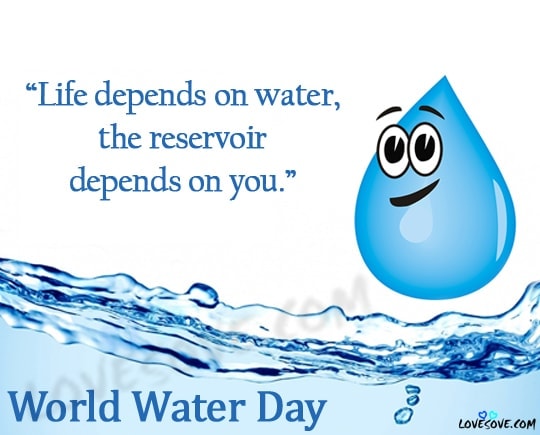22 MARCH 2021
JAL SAKTHI ABHIYAN
CATCH THE RAIN, WHERE IT FALLS,
WHEN IT FALLS /
The resolution to observe World Water Day was first adopted by the UN General Assembly on 22 December, 1992 and March 22 was declared as World Water Day highlighting the importance of water throughout the world.
The theme of World Water Day 2021 is “Valuing Water” and has been chosen to highlight the value of water in our daily life.
“The value of water is much more than its price – water has enormous and complex value for our households, food, culture, health, education, economics and the integrity of our natural environment. If we overlook any of these values, we risk mismanaging this finite, irreplaceable resource.”
The United Nations Water Development Report urges the whole of humanity how to deal with the water crisis in the world.
The UN World Water Report (UN WWDR) is an annual and thematic report that focuses on different strategic water issues each year and aims to provide decision makers with the tool to implement sustainable use of water resources at different levels and in geographical areas.
The 2021 Report assesses the true picture of the whole world stating that the access to both water and sanitation are human rights.
The role of water in our daily life is often overlooked but the value of water for WASH (water and sanitation services) is priceless.
The Report mentioned that across 61 countries, women and girls were responsible for carrying water in 8 out of 10 households which equals 200 million hours.
It is estimated that achieving universal access to safe drinking water and sanitation in 140 low and middle income countries would cost 114 billion USD per year.
During the Covid -19 pandemic, three billion people and two out of five health care facilities lacked adequate access to hand hygiene facilities that caused the high risk of spread of Covid-19 and other diseases.
The value of water to agriculture, industry, business and energy can be assessed through an economic perspective but its inefficient use has led to high discharge of pollutants and degraded our marine and fresh water systems.
The environment is central to the water cycle and all water originates in the environment and reaches there with impurities made by humans.
It is very important that environmental values include different perspectives of economic valuation and other cultural and societal beliefs.
The Report specifically mentioned that by 2030, investment in water and sanitation infrastructure will need to be around 0.9 to 1.5 trillion USD per year, roughly 20 per cent of the total infrastructure investment.
The 34th UN – Water Meeting was convened on 15 – 17 March 2021 and discussed on UN Water procedural matters and advancing SDG 6 Global Acceleration Framework, including the country level engagement pilot work.
On 18 March 2021, the UN General Assembly held a High- Level Meeting on the water related goals and targets of the 2030 Agenda and the member states shared their experiences and lessons on promoting and achieving the goal at national, regional and global levels.
The meeting reviewed the progress and preparations of the UN Conference to be held on 22-24 March 2023 in New York that will focus on the objectives of the Water Action Decade 2018-2028.
The 2020 edition of the World Water Development Report was on “Water and Climate Change” to help the community to tackle the challenges of climatic change and opportunities to improve water management.
The climate is changing and will continue to change, affecting millions of people. It will pose great risk for energy production, food security, health, sanitation and economic development, thus seriously affecting the achievements of the Sustainable Development Goals.
In India, on the occasion of World Water Day, Prime Minister Narendra Modi inaugurated the launch of Jal Sakthi Abhiyan in the country.
The theme of the day is “Catch the rain, Where it falls, When it falls.”
It also marks the signing of the memorandum of Agreement between the two States, Uttar Pradesh and Madhya Pradesh to implement the Ken Betwa Link Project, interlinking of rivers.
This is the first project of the National Perspective Plan for interlinking of rivers of Ken and Betwa by constructing Daudhan Dam and a canal linking system of two rivers.
It will provide drinking water supply to nearly 62 lakh people and generate 103 MegaWatt power. The project envisages to irrigate 10.62 lakh hectare of land in the water starved regions of two states.
The Project was kept pending for years as it is feared that it will partly submerge the Panna Tiger Reserve and affect the habitat of many wild lifes. The Panna National Park was formed in 1991 and this was included as India’s 22nd tiger reserve.
A campaign for water conservation at grass root level through the participation of people in rural and urban areas will be launched across the country.
“Water is our most precious resource, a ‘blue gold’ to which more than 2 billion people do not have direct access. It not only is essential to survival, but also plays a sanitary, social and cultural role at the heart of human societies”, says Audrey Azoulay, Director General of UNESCO.


